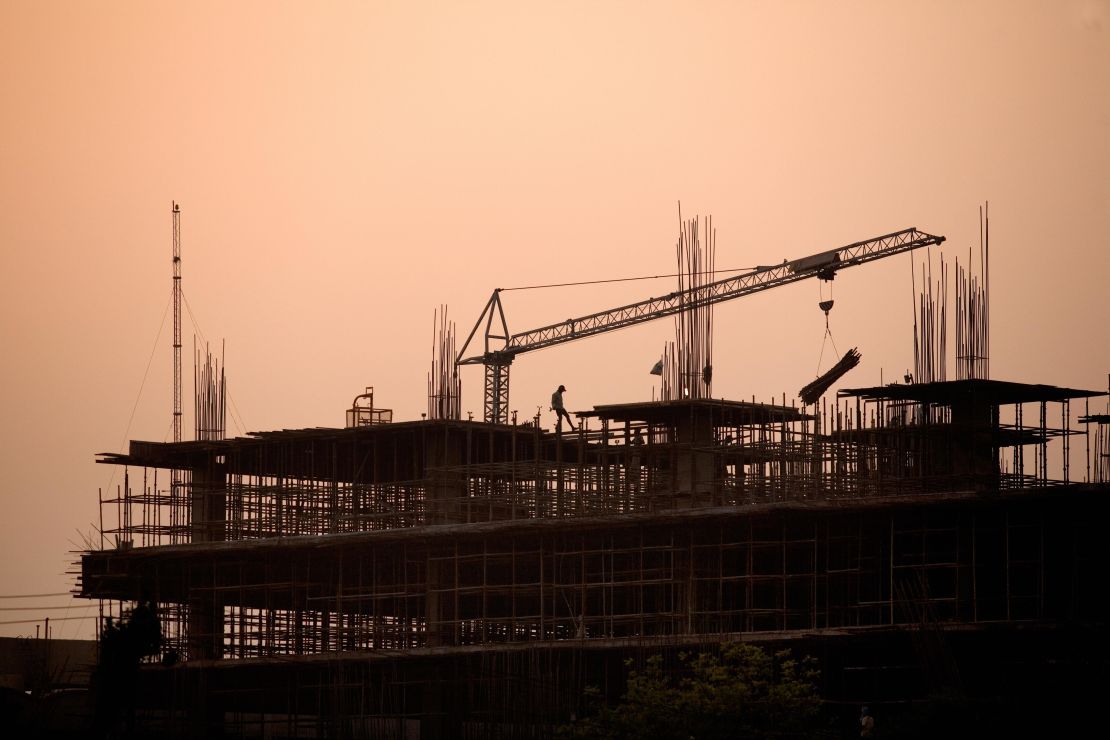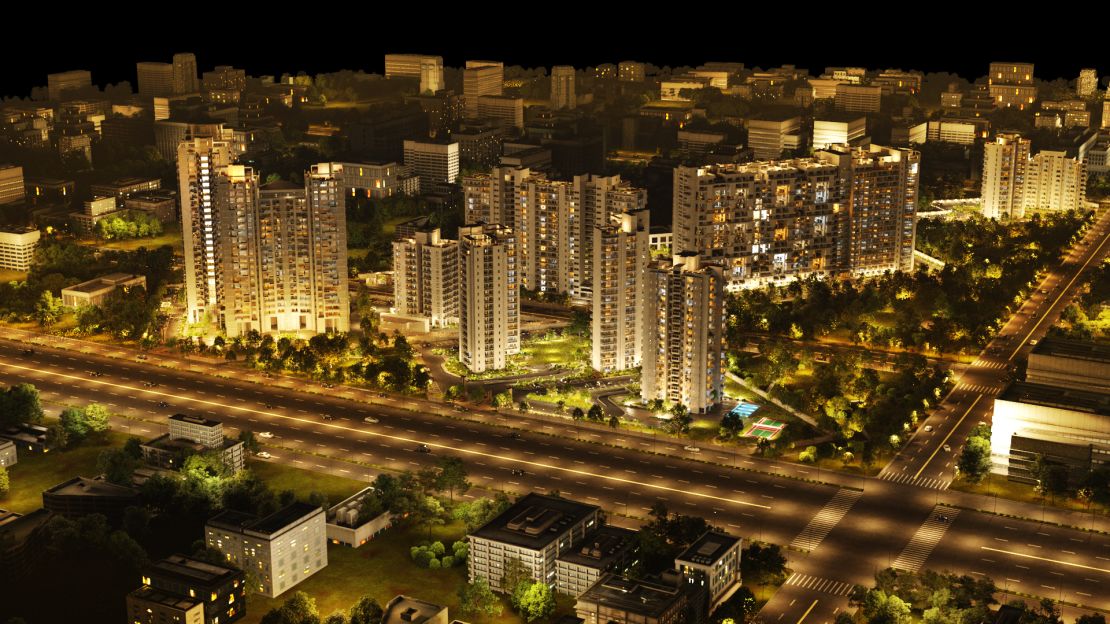You’ve probably never heard of Gurgaon.
But this city, located just 30km south of New Delhi, is being transformed into one of India’s leading tech hubs, home to some of the world’s biggest brands.
“(In Gurgaon), you have Google and Facebook,” says Akshant Goyal, vice president of Zomato, an Indian restaurant discovery platform headquartered in Gurgaon.“And within (the One Horizon Center) you will find Uber, Booking.com and TripAdvisor,” he adds.
What’s unusual about Gurgaon is that private developers are spearheading the city’s development. Companies buy plots of land, apply for licenses to build high-rise apartments or trade centers there, then the government plans the road network around these ventures.
“The infrastructure comes in later,” says Salman Akbar, director of International Land Developers, a family-owned Indian company that has been developing industrial, commercial and residential projects in Gurgaon since the late 1990s. “We build, the government plans around it, and gets the land for other public amenities.”
Developers pay the government to build the roads, sewage, water, and electricity which service their projects, says Akbar.
How it started
Today, Gurgaon is a thriving hub of skyscrapers and luxury apartments. But just 50 years ago, Gurgaon was a relatively small farming area.
“(Back then) the land was still quite fertile in Gurgaon,” says Akbar. “Before the development of the city, the major source of income was agriculture.”

Compared to neighboring regions, however, Gurgaon had relatively poor soil quality, according to a research paper,which made its land cheap. In the 1980s and 1990s, companies took advantage of this – for example, Maruti Suzuki, a joint venture between the Japanese and Indian automotive companies, established a massive manufacturing plant in Gurgaon around this time.
A new era of industrialization began in Gurgaon.
When did it become a tech hub?
Between 2001 and 2011, Gurgaon’s population exploded from 870,539 to more than 1.5 million, according to census data.
“General Electric was the first one to set up a Business Outsourcing Unit in (Gurgaon) in 1997. After that, the government announced various policies to incentivize development of IT Parks and Special Economic Zone,” says Akbar, whose family built a 250 acre (around 100 hectare) industrial park in the area in the same year.

In recent years, the government gave “incentives” to information technology companies and developers to transform the city into a tech hub, he adds.
Founded in 2008, Zomato currently has two offices in Gurgaon employing about 1,200 staff. Goyal says about 50% of those employees live within 2km of their office.
Housing
As the tech hub has flourished, Gurgaon has seen an explosion in residential real estate.
“Ten years ago, most people used to live in Delhi but work in Gurgaon. Now it’s different,” says Goyal. “We don’t see a strong reason to look for any other city in India.”
Akbar’s company has built a 30-acre (around 12 hectare) residential project with about 1,600 apartments, and is currently working on projects that cover about 5 million square feet, which he says are mostly residential.
“(For housing) the government comes up with the master plan and then we just build according to what the government (says),” explains Akbar. “Even for the underprivileged, the below poverty line people, we’re (asked) to build a separate tower for them and give them at a very subsidized rate.”

There are also luxury apartments with bamboo flooring and private verandas to cater to the tech professionals the area attracts.
“We have schools in Gurgaon and they are close by my office, so we don’t have to travel too much, ” says Goyal, who works and lives in the city, with his wife and two children. “In the school where my child goes, more than 80% of the (children) are actually non-Indians.
“You have got Koreans, Japanese, and folks from Europe living here now as expats.”
Can Gurgaon beat Bangalore?
“As a technology hub, only Bangalore or Hyderabad would be a better choice (than Gurgaon), as companies like Microsoft, Google, Amazon and Flipkart are located there,” says Akbar.
Gurgaon’s strengths include “connectivity to the airport and availability of grade A office spaces,” he adds. Indira Gandhi International Airport, in New Delhi, is a 30-minute drive from Gurgaon. In Bangalore it takes around 50 minutes to drive from the center of the city to Kempegowda International Airport.
With infrastructure projects are still taking place in Gurgaon, the city is by no means complete.
“Infrastructure development in Gurgaon is happening at a rapid pace with multiple flyovers, underpasses and metro (being built),” he says.
“The city has good hospitals, good schools and good entertainment options – malls, theaters, restaurants, bars and pubs … Overall, it’s a great city to live in.”





